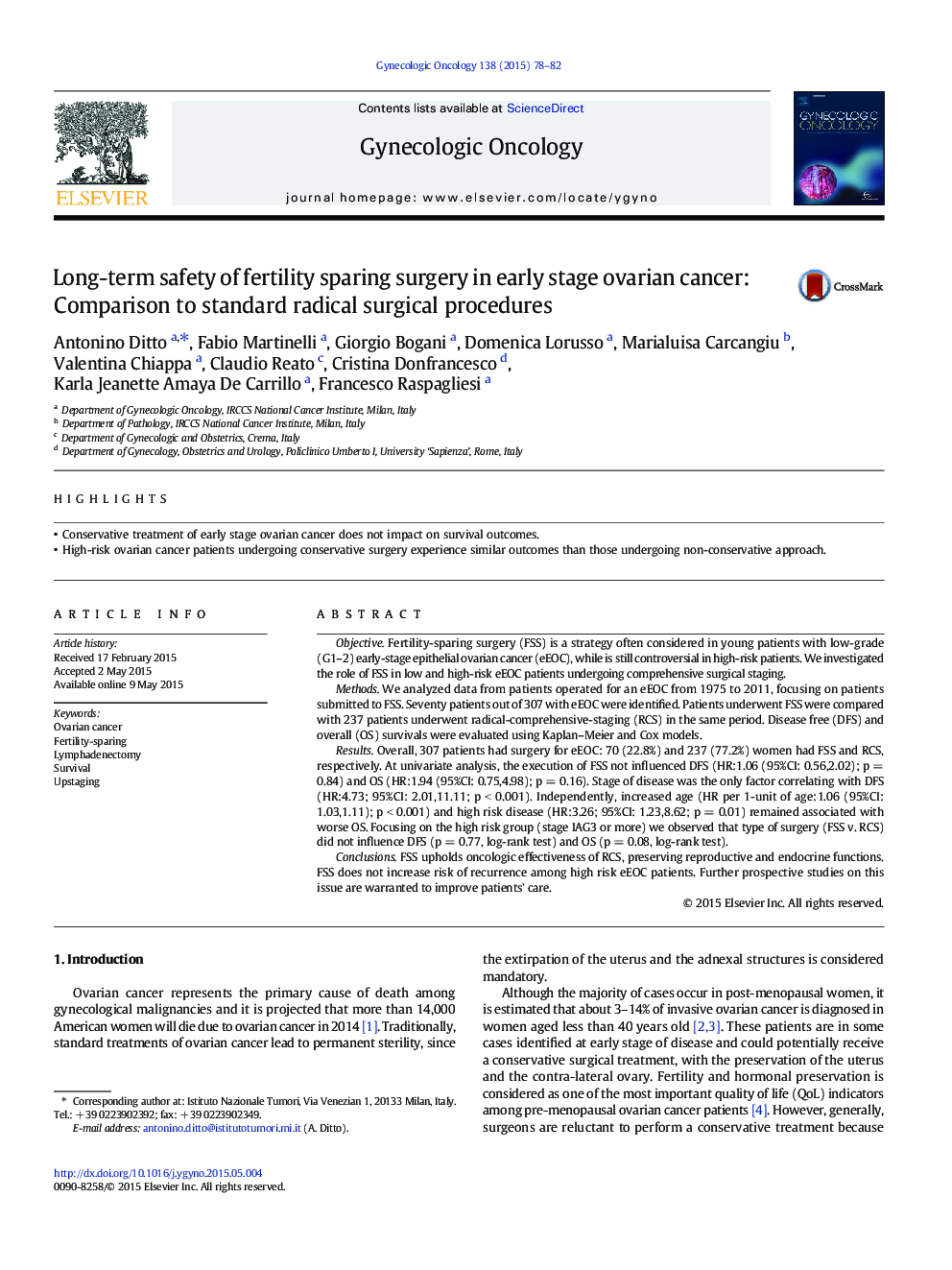| کد مقاله | کد نشریه | سال انتشار | مقاله انگلیسی | نسخه تمام متن |
|---|---|---|---|---|
| 6182639 | 1254024 | 2015 | 5 صفحه PDF | دانلود رایگان |
- Conservative treatment of early stage ovarian cancer does not impact on survival outcomes.
- High-risk ovarian cancer patients undergoing conservative surgery experience similar outcomes than those undergoing non-conservative approach.
ObjectiveFertility-sparing surgery (FSS) is a strategy often considered in young patients with low-grade (G1-2) early-stage epithelial ovarian cancer (eEOC), while is still controversial in high-risk patients. We investigated the role of FSS in low and high-risk eEOC patients undergoing comprehensive surgical staging.MethodsWe analyzed data from patients operated for an eEOC from 1975 to 2011, focusing on patients submitted to FSS. Seventy patients out of 307 with eEOC were identified. Patients underwent FSS were compared with 237 patients underwent radical-comprehensive-staging (RCS) in the same period. Disease free (DFS) and overall (OS) survivals were evaluated using Kaplan-Meier and Cox models.ResultsOverall, 307 patients had surgery for eEOC: 70 (22.8%) and 237 (77.2%) women had FSS and RCS, respectively. At univariate analysis, the execution of FSS not influenced DFS (HR:1.06 (95%CI: 0.56,2.02); p = 0.84) and OS (HR:1.94 (95%CI: 0.75,4.98); p = 0.16). Stage of disease was the only factor correlating with DFS (HR:4.73; 95%CI: 2.01,11.11; p < 0.001). Independently, increased age (HR per 1-unit of age:1.06 (95%CI: 1.03,1.11); p < 0.001) and high risk disease (HR:3.26; 95%CI: 1.23,8.62; p = 0.01) remained associated with worse OS. Focusing on the high risk group (stage IAG3 or more) we observed that type of surgery (FSS v. RCS) did not influence DFS (p = 0.77, log-rank test) and OS (p = 0.08, log-rank test).ConclusionsFSS upholds oncologic effectiveness of RCS, preserving reproductive and endocrine functions. FSS does not increase risk of recurrence among high risk eEOC patients. Further prospective studies on this issue are warranted to improve patients' care.
Journal: Gynecologic Oncology - Volume 138, Issue 1, July 2015, Pages 78-82
